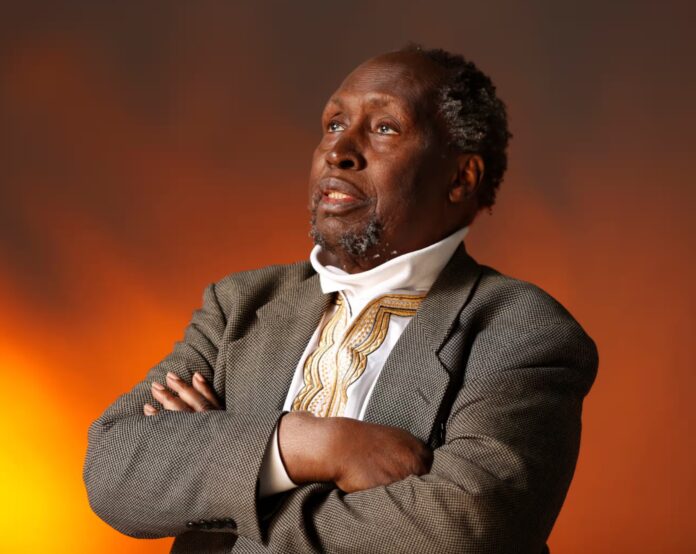Biodun Olumosu
The literary world and political activists are going to miss Professor Ngugi wa Thiong’o whose death was announced on 28th May 2025, three days after the usual annual celebration of African Freedom Day.
Ngugi wa Thiong’o became a household name from the 1960s due to his profound contributions to the world of literature. He was formerly a scholar in Makerere University and other universities across the world. He established himself as a great scholar of distinction throughout his career as an academic. But unlike his contemporaries, he utilised his literary works towards the service of liberation politics rather than for the purpose of arts for the sake of arts only.
Ngugi’s works were well received across the world and here in Nigeria and other African countries. His works include amongst the long list of novels, plays, and essays: Weep Not Child (1964), The River Between (1965), A Grain of Wheat (1967), Petals of Blood (1977), Devil on the Cross (1980), The Black Hermit (1963), Homecoming (1969), Trial of Dedan Kimathi (1976), I Will Marry When I Want (1977), Detained: A Writer’s Prison Diary (1981), Barrel of a Pen (1983), Writing Against Neo-Colonialism (1986), Education for a National Culture (1981), Writers in Politics (1981).
What distinguished Ngugi wa Thiong’o from many other African authors is that his works are intertwined with his politics. Since he was influenced by Marxist politics and ideology, he never looked back in using his literary platform to convey messages of his political convictions. This he creatively carried out with the motive of carrying his readers and followers along as participants in the struggle rather than being isolated appreciators of his arts. It was for this reason that he was not in the good books of the ruling elites. They perceived his intervention in the class struggle as dangerous and contagious. As he motivated the exploited and oppressed working peoples to revolt and rage against their oppressors.
The common themes that ran through Ngugi’s works include arguments against colonialism and imperialism, the rage of the oppressed people against the privileged few and the issue of the culture of resistance. He also discussed the type of colonial education provided to the future educated elites in order to continue the system of capitalism introduced by the colonialists. Also, the issue of neocolonialism as a continuation of the past colonial rule. He equally advocated for changing from the study of English language to reading African literature in African universities. He made good his advocacy to write in his local language rather than in the colonial language. He believed that this would go a long way to espousing and maintaining the culture of the people for which language is so important.
His works can best be described as multidisciplinary in nature as they cover a wide range of disciplines converging in one. These are African history, culture, psychology of the victims of oppression, anthropology in the study of colonialism, politics and literature, class struggle, sociology of literature, and the issue of colonial education.
The background of his writings could be traced to the tragedy that afflicted his family and country people as victims of their resistance against colonialism. Typical of the resistance was the case of Mau Mau revolt and resistance by Kenya freedom fighters, which led to thousands of people being massacred by the colonial terrorist state. Two of his siblings were consumed and killed as a result of this repression. It was just recently that the British government had to accept their blame on the same circumstances, an epochal tragedy meted against Kenya people fighting for their rights for self-determination. Victims were thereby recommended to be compensated for through their families and loved ones.
For Ngugi wa Thiong’o, politics took an upper stage of his life and this was responsible for his incessant victimisation and harassment over his alternative views and activities in the mobilisation of the people against the system of oppression. He was thrown into prison for his criticism against the authoritarian government of Arap Moi. At other times, on travelling out of the country for his professional work, the government made it impossible for him to return to the country. As a result, he had no alternative than to be in exile for a long period of time.
After the demise of Arap Moi, whose dictatorship was a class of his own in African politics, Ngugi returned to Kenya on the belief that the country would be free for him and others. But alas, this turned out to be a misconception, as the state planned using bandits to eliminate him in his household. He was only lucky to have been able to escape and run for his life and back to the second round of exile until the end of his life. Yet his presence in exile still tormented the successive regimes in Kenya.






